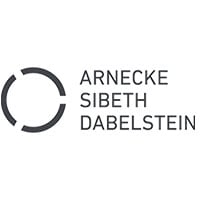

General counsel and chief risk officer | Exporo



Greta Gaumert
General counsel and chief risk officer | Exporo
Focus on… German law has existence-threatening effect for alternative forms of financing
The new German coalition agreement states: ‘modern state, digital awakening and innovations’ is exactly what we need in Germany and Europe. However, some developments prevent the rising of a young, motivated industry in Germany. In particular, the “Schwarmfinanzierungs-Begleitgesetz zur ECSP-VO”, in force since mid-2021. A law that probably hardly anyone knows about or has paid attention to —except for digital financing platforms. This law not only has adverse effects on the business models of digital financing platforms but also, for example, on the start-up scene, real estate and renewable energy companies and their access to alternative sources of capital.
Digital financing, such as crowd investing, is essential for providing companies with alternative access to capital and thus promoting innovation. In addition, it enables private investors to participate in such companies and thus invest in a diversified manner. Platforms enable this matching of innovation and financing potential.
From my point of view, the current implementation of the European Crowdfunding Regulation (ECSPR) by the German legislator — legitimate and needed — aims to enable a harmonised and regulated European market for alternative financing options and thereby foster consumer protection.
However, regarding the offering documents (so-called KIIS), German law provides for an unprecedented personal liability of natural persons of platforms and borrowers for slight negligence. It is, therefore, especially threatening to the existence of such people. This liability regime is significantly stricter than other liability regimes under capital market law. It is precisely the purpose of corporations to avoid passing liability to natural persons. Who should voluntarily take on such incalculable and uninsurable liability, especially as an employee?
In practice, the current liability regime will lead to the ESCPR being virtually inapplicable in Germany, contrary to the will of the EU legislator, and prevent regulated alternative financing. Therefore, the German liability regime will not promote the justified consumer protection sought by the ECSPR but will counteract it. Only borrowers indifferent to this risk will choose financing via the new regime. All other risk-conscious borrowers will refrain because they assess the liability risk as too high. In addition, platforms will try to find solutions outside the regulated area or must cease their business operations. They will not apply for an ECSP licence. The goal and the means, therefore, do not match.
I suggest a limitation of liability to legal entities in line with the other capital markets law provisions. The liability of natural persons should be enforced in the usual cases, especially in the case of wilful misconduct or criminal actions. This will help the ECSPR to become accepted in Germany, leading to comprehensive regulation of platforms and promoting consumer protection.
We want innovation. This needs funding. But those who innovate must also be allowed to fail. Therefore, the current regulation must be interpreted in such a way that German legislators want to prevent digital financing, particularly crowdfunding in Germany. I am confident that this will change for the benefit of companies seeking capital and investors wishing to invest in a diversified manner.